When it comes to germs and diseases, danger lurks everywhere; but even more so in public spaces like hotels, bed and breakfasts, and restaurants. With so many people sharing the same spaces and facilities, it is easy for surfaces to become a breeding ground for germs.
It is for this reason that cleaning and sanitation is of utmost importance. As neat and clean as a space might look, negligent cleaning can foster hotspots for germs. To ensure that your organisation stays germ-free, here are 6 sanitation processes to help you provide a safe environment for your customers:
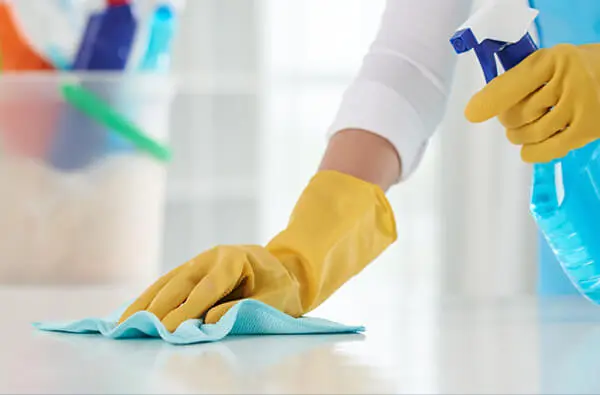
Proper cleaning and sanitation of common contact surfaces is crucial in maintaining a sanitary environment. These surfaces could include furniture, knobs, and handles, or in the case of restaurants, utensils, and worktops.
Not only are these common contact places for people who use these spaces, they are also prone to contact with disease-spreading insects like cockroaches and flies.
Handy Andy Multi-Purpose Cream is a great multi-tasking product to add to your cleaning inventory which lifts grease and grime, and at the same time sanitises surfaces.
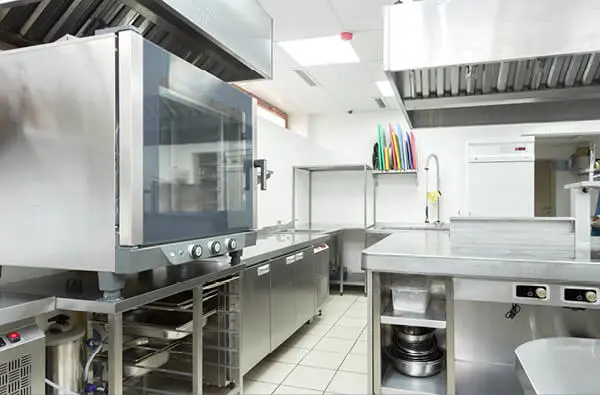
When it comes to kitchens, equipment such as food slicers can become a hotbed for germs with leftover bits of meat. In offices, keyboards and computers are the main germ carriers.
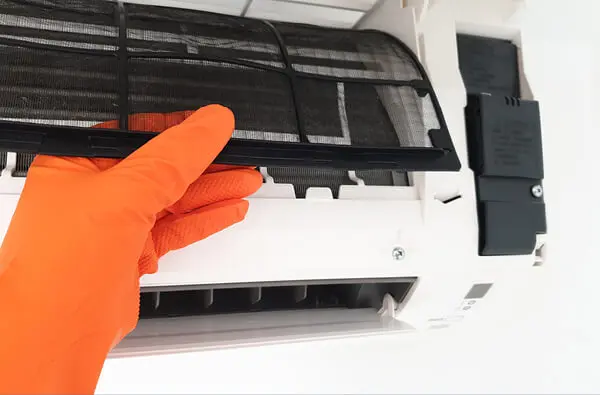
Indoor air pollutants can trigger asthma and respiratory problems in people who suffer from these conditions as well as those with weaker immune systems.
Regular HVAC cleaning and servicing, so that dust, dirt, and germs are not constantly circulated, is therefore an important step in the sanitation process of your organisation.
As a rule, your HVAC ducts should be cleaned once every 3 to 6 months to ensure that the circulating air is properly filtered for overall improvement of indoor air quality.
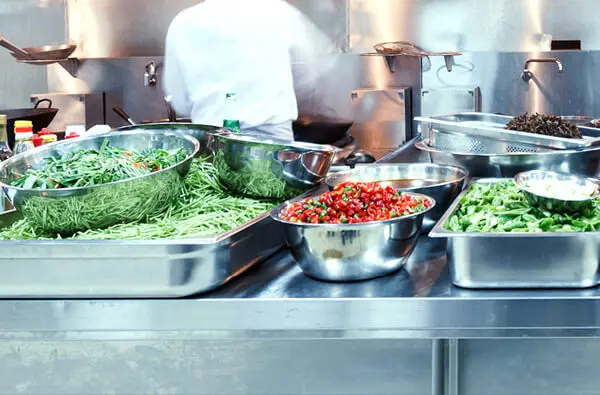
This is an important process for restaurants and kitchens. How, where and at what temperature food is stored is a key factor in the prevention of bacteria and germ breeding. For the same reason, food should not be kept out too long or made too far in advance.
Another common mistake that is often overlooked is cooling food in the same ice that is to be served and consumed in beverages. These things may sound trivial but they can quickly become detrimental to your restaurant if customers fall ill due to food contamination.
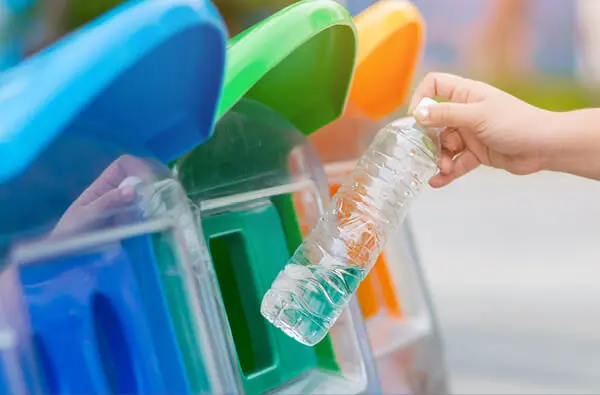
Waste disposal plays a very important role in sanitation. To begin with, garbage should be sorted and stored in differentiated bins to ensure it is properly disposed of. Schedule garbage pickups daily or twice a day, depending on the volume of waste collected. Bin liners should also be changed regularly to prevent unpleasant odours and waste leakage due to wear and tear.
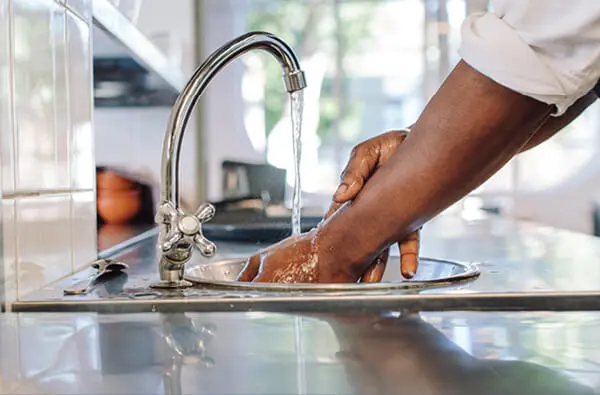
Last but not least, the promotion of personal hygiene is of utmost importance in every organisation, especially the food service industry.
With the numerous surfaces that people come in contact with on a day-to-day basis, hand washing is one of the most important ways to prevent viruses and bacteria from spreading.
Download our portfolio of commercial cleaning products from trusted brands.